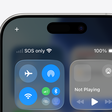![]() In support of today's extensive list of software releases, Apple has also pushed out the final public version of Xcode 4.2, now available through Apple's developer channel and on the Mac App Store. Xcode is Apple's package of developer tools for creating both OS X and iOS applications.
In support of today's extensive list of software releases, Apple has also pushed out the final public version of Xcode 4.2, now available through Apple's developer channel and on the Mac App Store. Xcode is Apple's package of developer tools for creating both OS X and iOS applications.
What's New in Version 4.2
- Includes SDKs for Mac OS X 10.7 Lion and iOS 5
- Storyboards let you design multiple iOS screens, and define the segues among them
- Automatic Reference Counting (ARC) saves you from manually managing retain/release
- iCloud entitlements are automatically enabled for Mac and iOS apps
- OpenGL ES Debugger graphically analyzes your OpenGL scene directly within the IDE
- Apple LLVM compiler supports C++11 features and the LLVM libc++ standard library
- Older iOS Simulators and device debugging symbols are downloaded on-demand
Xcode 4.2 requires OS X Lion and is a free download on the Mac App Store.





















Top Rated Comments
It's better than garbage collection. GC is run-time technology and can have a dramatic negative effect on performance. Furthermore, the performance cannot be relied upon to be constant (CPU usage can spike when the GC is sweeping), and since you don't know beforehand when the GC is doing its business, bugs can be harder to track down (objects may disappear at unknowable times).
ARC is a compile-time technology. It inserts retain, release, and autorelease messages just as you would, then optimizes out redundancies before the binary is built. It simply uses the same well-defined memory management rules that you would except it doesn't make mistakes as a human can. There is no run-time penalty.
The biggest disadvantage for ARC is it can't detect cyclical references like a GC can, and that's why it includes the __weak type identifier. So you need to be a little careful for those situations, but overall it's a better technology than GC, which is why GC in Xcode will be going away in favor of ARC, at some point.
No. It is the same old retain/release/autorelease thing, except that you don't write the statements anymore, but the compiler does it for you. The effects are: 1. Your code will be correct, because the compiler doesn't forget to retain or release an item when it should. 2. Your code may become faster, because the compiler optimizes unneeded retain/release away, implements autorelease pools faster, and uses specialized code instead of Objective-C methods. 3. If you have code that is so convoluted that the compiler can't figure out when to retain/release objects then it doesn't compile and you'll have to fix it. Most likely your code was broken anyway in that case.
Compared to Garbage Collection, your memory footprint will be lower.
Damn, thanks for checking
*rages* :mad:
I'm not sure if the Lion version is available on on the dev center. I downloaded it from the App Store and it went along fine. My coworker is downloading the SL one from the dev center and it's taking forever.
Yes, iOS 5.0 or greater is required for your binaries to use it.